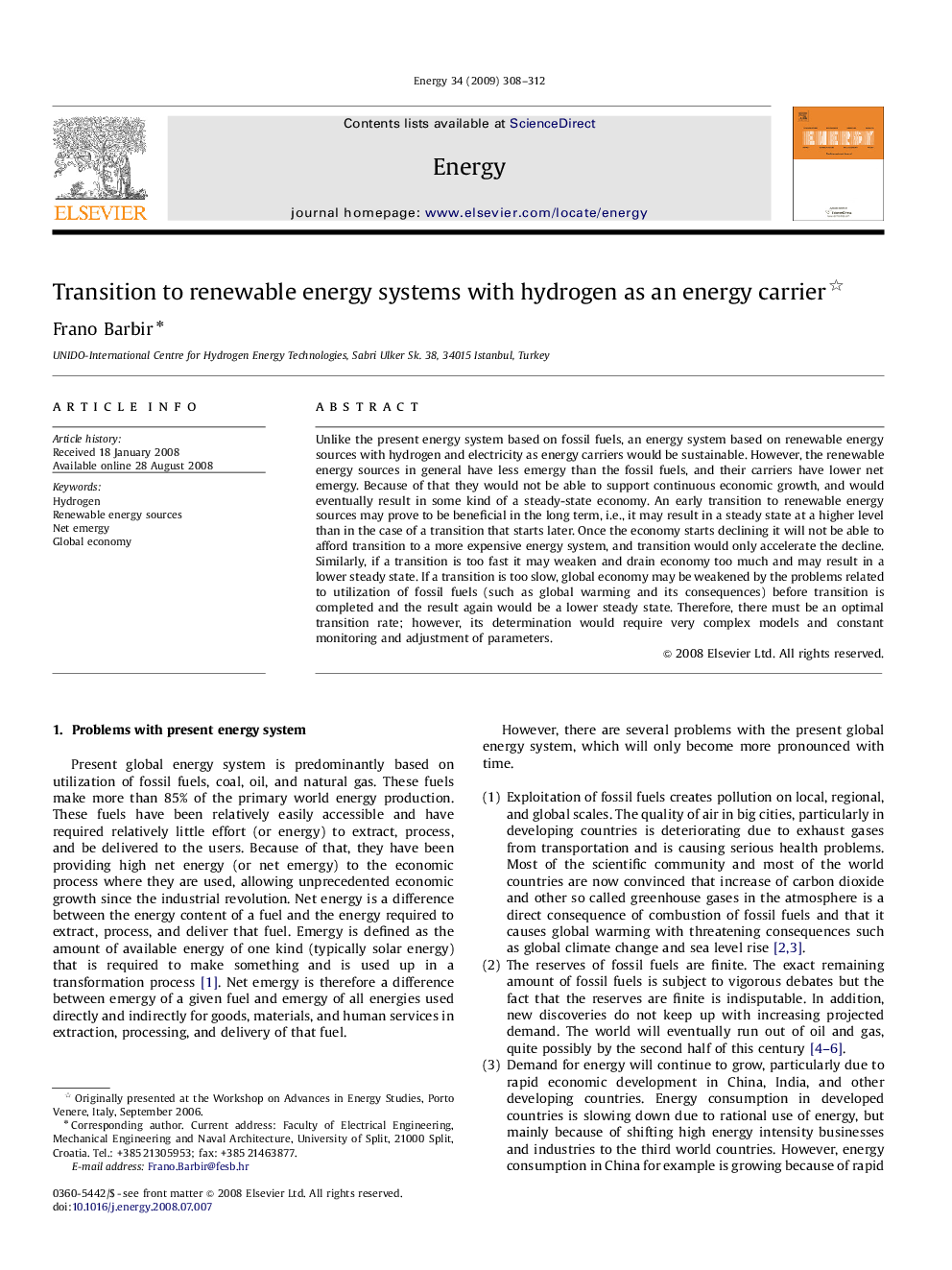| Article ID | Journal | Published Year | Pages | File Type |
|---|---|---|---|---|
| 1735031 | Energy | 2009 | 5 Pages |
Unlike the present energy system based on fossil fuels, an energy system based on renewable energy sources with hydrogen and electricity as energy carriers would be sustainable. However, the renewable energy sources in general have less emergy than the fossil fuels, and their carriers have lower net emergy. Because of that they would not be able to support continuous economic growth, and would eventually result in some kind of a steady-state economy. An early transition to renewable energy sources may prove to be beneficial in the long term, i.e., it may result in a steady state at a higher level than in the case of a transition that starts later. Once the economy starts declining it will not be able to afford transition to a more expensive energy system, and transition would only accelerate the decline. Similarly, if a transition is too fast it may weaken and drain economy too much and may result in a lower steady state. If a transition is too slow, global economy may be weakened by the problems related to utilization of fossil fuels (such as global warming and its consequences) before transition is completed and the result again would be a lower steady state. Therefore, there must be an optimal transition rate; however, its determination would require very complex models and constant monitoring and adjustment of parameters.
